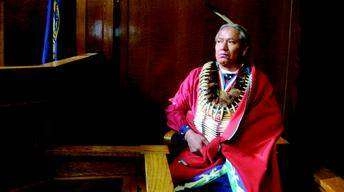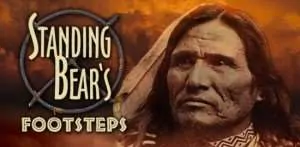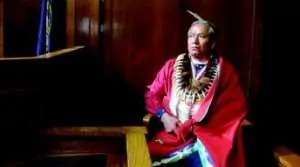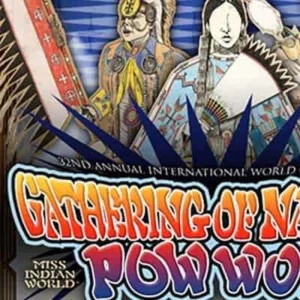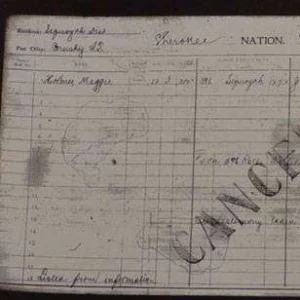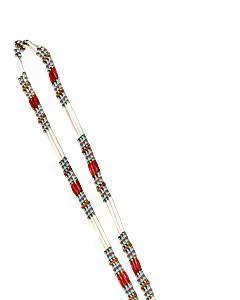In Nebraska, many celebrate the life of Ponca Chief Standing Bear on May 12th. Standing Bear was the first Indian civil rights person, and continues to be a role model for many Ponca youth.
As told in the documentary film Standing Bear's Footsteps, produced by Nebraska Educational Telecommunications (NET) for Vision Maker Media, the Ponca Nation was exiled from Nebraska to the malaria-infested plains of Indian Territory in present-day Oklahoma. After the banishment, to honor his dying son’s last wish to be buried in his homeland, Chief Standing Bear and his small clan set-off on a frigid, six-hundred-mile journey back to their former home. En-route, they were arrested and imprisoned at Fort Omaha for leaving the Reservation. Standing Bear and his starving band were about to be sent back to “death country” when a remarkable series of events unfolded.
A reporter from the Omaha Daily Herald broke the story and Standing Bear was suddenly at the center of a storm of controversy. Though he spoke no English, the Chief’s eloquence attracted powerful allies—including the famous army general who had arrested him. If he could prove he was a person in the eyes of the law, Standing Bear could return to his Nebraska homeland. In May of 1879, Standing Bear sued the U.S. government for his freedom. His courtroom trial ended with a plea directly to the judge: “My hand is not the same color as yours. If I pierce it, I shall feel pain. If you pierce your hand, you too will feel pain. The blood that flows will be the same color. I am a man. The same God made us both.”
The trial of Standing Bear sparked a national debate that also posed questions such as: Who were the Indians? Were they savages or human beings? Did they have the same rights as any immigrant? “This story turns the classic western upside down,” said Joe Starita, author of I Am a Man: Chief Standing Bear’s Journey for Justice. “This is a man who personifies courage, perseverance, fortitude, love of family and love of homeland. The irony is not only was he not considered an American, he wasn’t even considered a person.”
This documentary interweaves storytellers, re-creations and present-day scenes to explore a little-known chapter in American history. “The film has much to say about present-day issues of human rights and what it means to be an American,” NET Television Producer and Director Christine Lesiak said. “I was amazed to learn that the 14th Amendment to the U.S. Constitution granted citizenship to anyone born in the United States—except the Indians. And it wasn’t until 1924 that Native Americans were actually granted citizenship. This whole debate started with a father who wanted only to keep a promise.”
“Today we are using the legal process to define who we are,” said Judi gaiashkibos, who served as the principal consultant on the film and is the executive director of the Nebraska Commission on Indian Affairs. “The law defines who we are as human beings, especially for Indians. People have to be empowered with the knowledge of themselves. We have to beat them at their own game. And Standing Bear was one of the first to do just that!”
For more information on the documentary, and educational materials for teachers, please visit:
http://standingbearsfootsteps.netnebraska.org/home/
http://www.pbs.org/program/standing-bears-footsteps/
Standing Bear's Footsteps e-book is available for free on iPad or on your Apple computer.
https://itunes.apple.com/us/book/standing-bears-footsteps/id759229133?ls=1&mt=11
